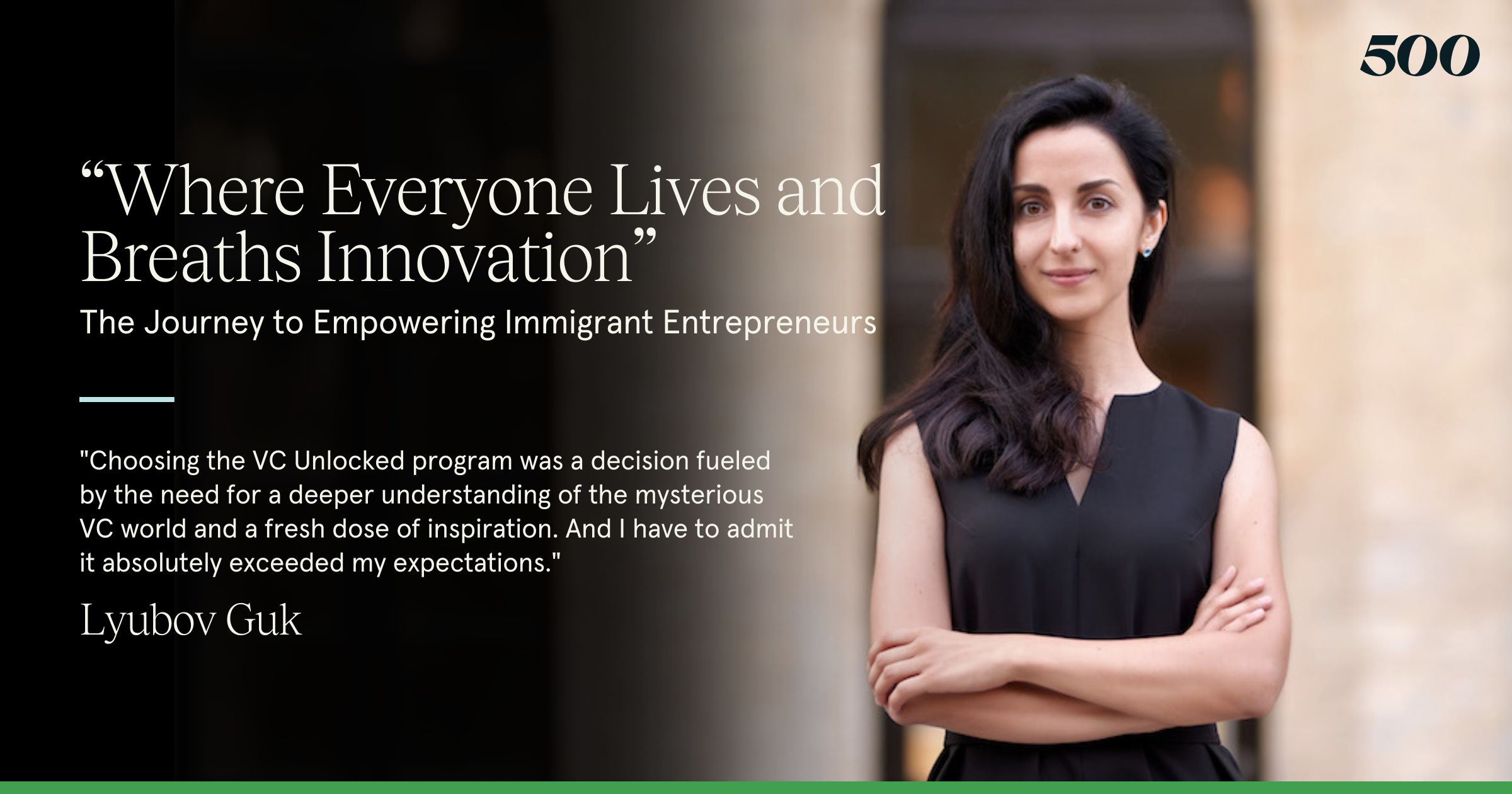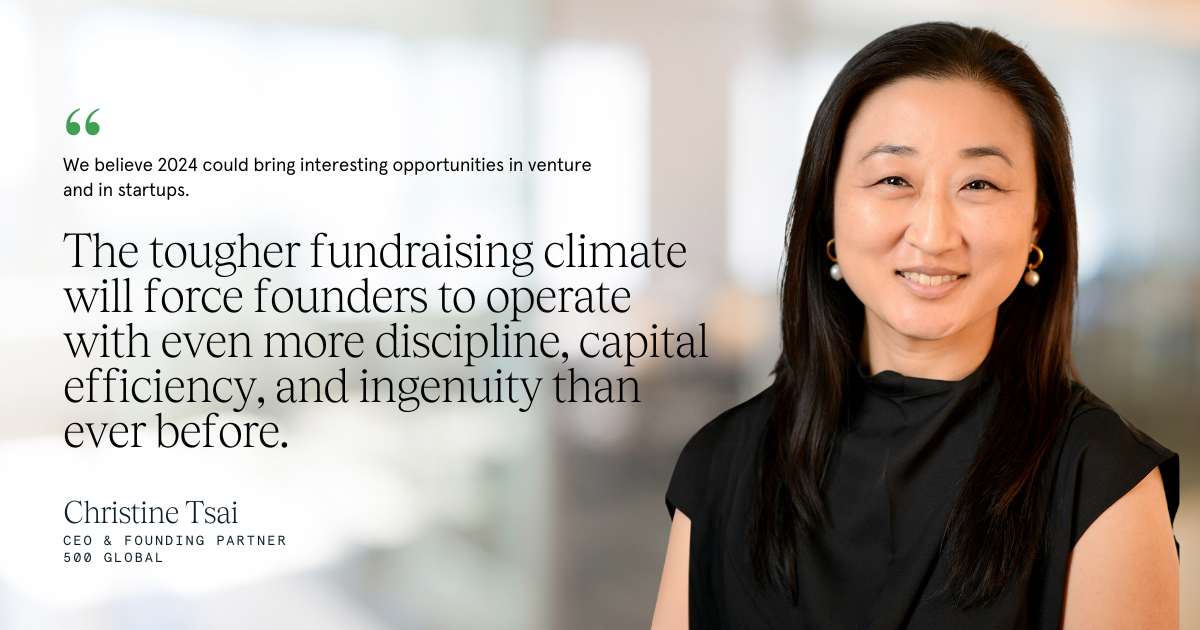It can be startling to behold the economic impact of disparities around diversity, equity and inclusion, or DEI. Research shows the U.S. has lost $16 trillion in GDP in the last two decades due to the racial wealth gap, while eradicating that gap could add 4% to 6% to our GDP by 2028. That’s a big reason why DEI is becoming a key policy issue and a rising priority for businesses.
The issue extends to startup ecosystems too, and Silicon Valley is no exception. Consider the stats: roughly 14% of the U.S. population is Black and nearly 18% is Latinx, but less than 3% of venture-backed startup founders come from these groups. That has long been chalked up to a pipeline problem, but data shows this is a myth and that diverse teams have higher returns on positive exits. Meanwhile, only 2.3% of VC funding went to women-led startups last year.
Bridging these gaps and embracing Diversity, Equity and Inclusion is not only the right thing to do—it’s also good for business. Founders should take note, because it’s important to embrace DEI at the early stage. “That’s when you’re building your culture,” says Mariah Lichtenstern, founding partner at DiverseCity Ventures and a fellow at the Aspen Tech Policy Hub. “It’s so much easier to build that culture from the ground up than to retrofit.”
500 Startups recently hosted Mariah for a fireside chat to explore why DEI matters for early stage startups and how founders can implement DEI. An experienced entrepreneur and investor, Mariah has a wealth of knowledge on building DEI into company culture (she’s also a great to follow on LinkedIn, where she shares good DEI articles and resources).
We’re at a tipping point around DEI in startup ecosystems, but back when Mariah was first getting into the tech industry she found that bringing up diversity could be a trigger. Plenty of people thought it meant excluding them or taking away their slice of the pie. “It’s really about creating a bigger pie,” she says. “Diversity does include you, whatever your background, walk of life, gender is, it includes you.”
Today, DEI can still be uncomfortable for those living in the Silicon Valley bubble. “I’m gonna go ahead and be a bit provocative,” says Mariah. “It’s a type of ghetto.” The word ghetto in the U.S. is usually used to refer to a slum area, but the actual definition means an isolated group. As an insular pocket of entrepreneurs and investors, Silicon Valley fits the bill. “Sometimes we don’t recognize the ghettos we’re in, the ghettos of the mind,” says Mariah.
A big part of the issue is that underrepresented founders face significant barriers to capital formation. For starters, only 6% of VCs and less than 5% of angel investors are Black or Latinx. That’s problematic because VCs tend to invest in founders that come from backgrounds similar to their own. Mariah also points to SEC regulations that effectively segregate investors based on income and net worth, which result in most Americans being unable to qualify as accredited investors and invest freely.
Only between 10% to 15% of American households qualify as accredited investors, and of that only 1.3% are Black and 2.8% are Latinx%. Because of the racial wealth gap, the regulatory barrier makes it incredibly difficult for underrepresented founders to raise enough money from friends and family to achieve the milestones required for VC funding. In that, Mariah sees parallels to historical real estate redlining policies. “I like to call this startup redlining,” says Mariah. “It often flies under the radar, but it very much is economic engineering.”
Against that backdrop, Mariah says it’s important to realize that founders can make a big difference here. A diverse startup team can improve representation in cap tables and participation, while also allowing startups to capitalize on diverse perspectives that help build more dynamic businesses. As more diverse operators join founding teams and early stage companies, the more they’re able to participate in lucrative liquidity events and reinvest in their communities and increase the pool of diverse startup investors.
It’s also important to understand that embracing DEI is a top down process, as many early stage startups are not able to hire a head of DEI just yet. “As a fellow founder, we wear many hats,” says Mariah. “You are the DEI person.”
That starts by simply understanding different elements of DEI and focusing on building bridges between those with privilege and those with valuable, but underutilized perspectives. For example, Mariah says it’s important to foster cultural optimization rather than default to the idea of cultural fit. That’s because we’re often taught to assimilate into majority culture, which pressures women or people of color to conform or not bring their perspectives to the table. Obviously, it’s also important to remember that diversity isn’t just about being in the room. “It’s really about being included and honored in the decision-making process,” says Mariah.
Fortunately, there are resources founders can utilize to begin their DEI journey, one of which Mariah helped develop herself. Through her work at the Aspen Tech Policy Hub, Mariah helped create the Startup DEI Pledge, which is designed to optimize startup culture for DEI and help close the tech funding gap.
Modeled after the Mekong Club Business Pledge Against Modern Slavery, the pledge has four steps adaptable to any organization, starting with a complimentary online assessment that takes under 15 minutes. Step two is implementation, where companies plan, schedule and introduce DEI activities. Step three is tracking, with companies scheduling a quarterly internal review of efforts. Step four is measurement, with companies reassessing annually to gauge progress and benchmark. The pledge also includes a framework intended to help startups improve performance, ROI and cap table equity by providing practical guidelines, external accountability and support.
Companies that complete the Startup DEI Pledge receive a certificate and get access to resources provided by Emtrain, a cultural analytics platform that does DEI benchmarking. Resources include surveys and videos to help founders understand cultural contexts and benchmark against peers.
Ultimately, founders that successfully embrace DEI will not only build better businesses, but they’re also paving way for employees to feel a sense of belonging. That should be a goal for all founders looking to build great teams and DEI is the foundation. “You are the visionary of your culture, you’re the architect of your culture,” says Mariah. “So it really starts with you.”
At 500 Startups, DEI is core to our firm’s mission. We are working with Diversity VC to assess our hiring and training practices, and how we source investments. We started making our diversity numbers public last year to show the diversity of our investments.
Here’s a snapshot, as of June 30, 2021:
- 4.6%1 of companies in our portfolio have at least one founder who identifies as Black, African American or African, compared to the VC industry’s 1%.2
- 11%1 of our portfolio have at least one founder who identifies as Latinx, compared to the industry’s 1.8%.2
- 24.7%1 of our portfolio have at least one female founder, compared to the industry’s 13%.2
We will continue to share our progress, as our DEI efforts are ongoing.
References:
1- This data is based on internal analysis of portfolio company data aggregated across all investment funds within the 500 Startups group (“PortCos”). The data is based on (i) a voluntary survey of PortCo founders/management teams which received responses from 72.5% of the founders polled and (ii) independent research conducted on the public records relating to PortCo founders/management teams by representatives of 500 Startups. The founder responses and the research data have not been verified and the accuracy or completeness thereof is not guaranteed. This data is as of December 31, 2020 and is provided for educational or informational purposes only, does not constitute any solicitation or marketing content, and should not be relied upon by any person (i) in making a decision whether to invest in, or engage in business with, 500 Startups and (ii) as legal, tax or investment advice. Further details on methodology and assumptions can be obtained from the 500 Startups Data Team.
2- Industry wide percentages as reported in [https://www.forbes.com/sites/committeeof200/2020/09/22/diversity-as-uperpower-the-well-known-data-against-homogeneous-teams-in-venture-capital/#2e0c2cba2019] OR [https://about.crunchbase.com/female-founder-report-2020/]. Note that such datasets may be as of a different date than the data presented for 500 Startups. Such external data has not been verified.
Disclaimer
500 Startups programs (including accelerator programs), investor education services, strategic partnership consulting services and events are operated by 500 Startups Incubator, L.L.C. (together with its affiliates, “500 Startups”) and the funds advised by 500 Startups Management Company, L.L.C. do not participate in any revenue generated by these activities. Such programs and services are provided for educational and informational purposes only and under no circumstances should any content provided as part of any such programs, services or events be construed as investment, legal, tax or accounting advice by 500 startups or any of its affiliates.
The views expressed here are those of the individual 500 Startups personnel, or other individuals quoted and are not the views of 500 Startups or its affiliates. Certain information contained herein may have been obtained from third-party sources, including from portfolio companies of funds managed by 500 Startups. While taken from sources believed to be reliable, 500 Startups has not independently verified such information and makes no representations or warranties as to the accuracy of the information in this post or its appropriateness for a given situation. In addition, this content may include third-party advertisements or links; 500 Startups has not reviewed such advertisements and does not endorse any advertising content contained therein.
This content is provided for informational purposes only, and should not be relied upon as legal, business, investment, tax or accounting advice. You should consult your own advisers as to those matters. References to any securities or digital assets are for illustrative purposes only, and do not constitute an investment recommendation, offer to sell or solicitation to purchase any investment securities, or offer to provide investment advisory services. Furthermore, this content is not directed at nor intended for use by any investors or prospective investors, and may not under any circumstances be relied upon when making a decision to invest in any fund managed by 500 Startups. (An offering to invest in an 500 Startups fund will be made only by the private placement memorandum, subscription agreement, and other relevant documentation of any such fund and should be read in their entirety.) Any investments or portfolio companies mentioned, referred to, or described are not representative of all investments in vehicles managed by 500 Startups, and there can be no assurance that the investments will be profitable or that other investments made in the future will have similar characteristics or results.
Charts and graphs provided herein are for informational purposes solely and should not be relied upon when making any investment decision. Past performance is not indicative of future results. The content speaks only as of the date indicated. Unless otherwise expressly stated, figures are based on internal estimates and have not been independently verified. Any projections, estimates, forecasts, targets, prospects, and/or opinions expressed in these materials are subject to change without notice and may differ or be contrary to opinions expressed by others. All logos and trademarks of third parties referenced herein are the logos and trademarks of their respective owners and any inclusion of such trademarks or logos does not imply or constitute any approval, endorsement or sponsorship of 500 Startups by such owners.
Please see Section 2 of our Terms of Use for additional important information.



